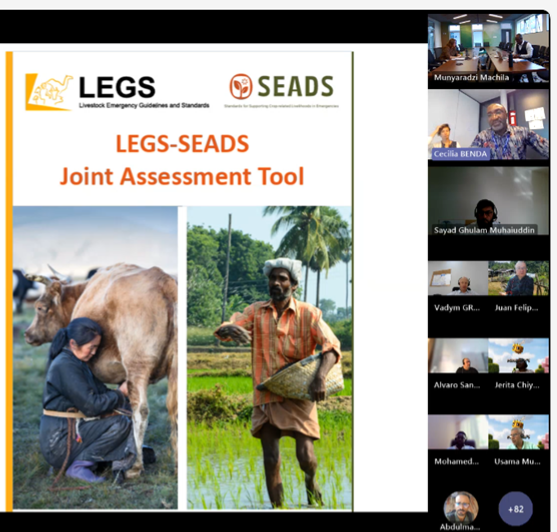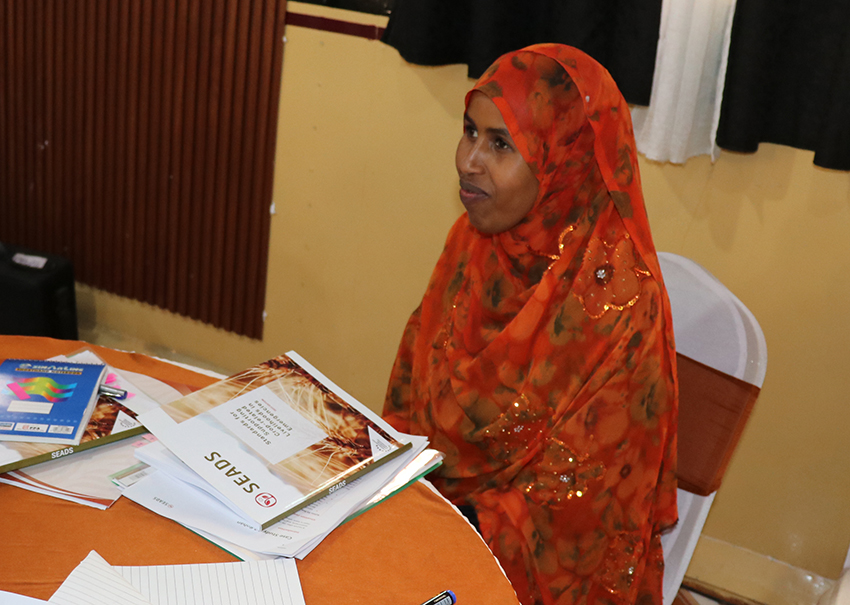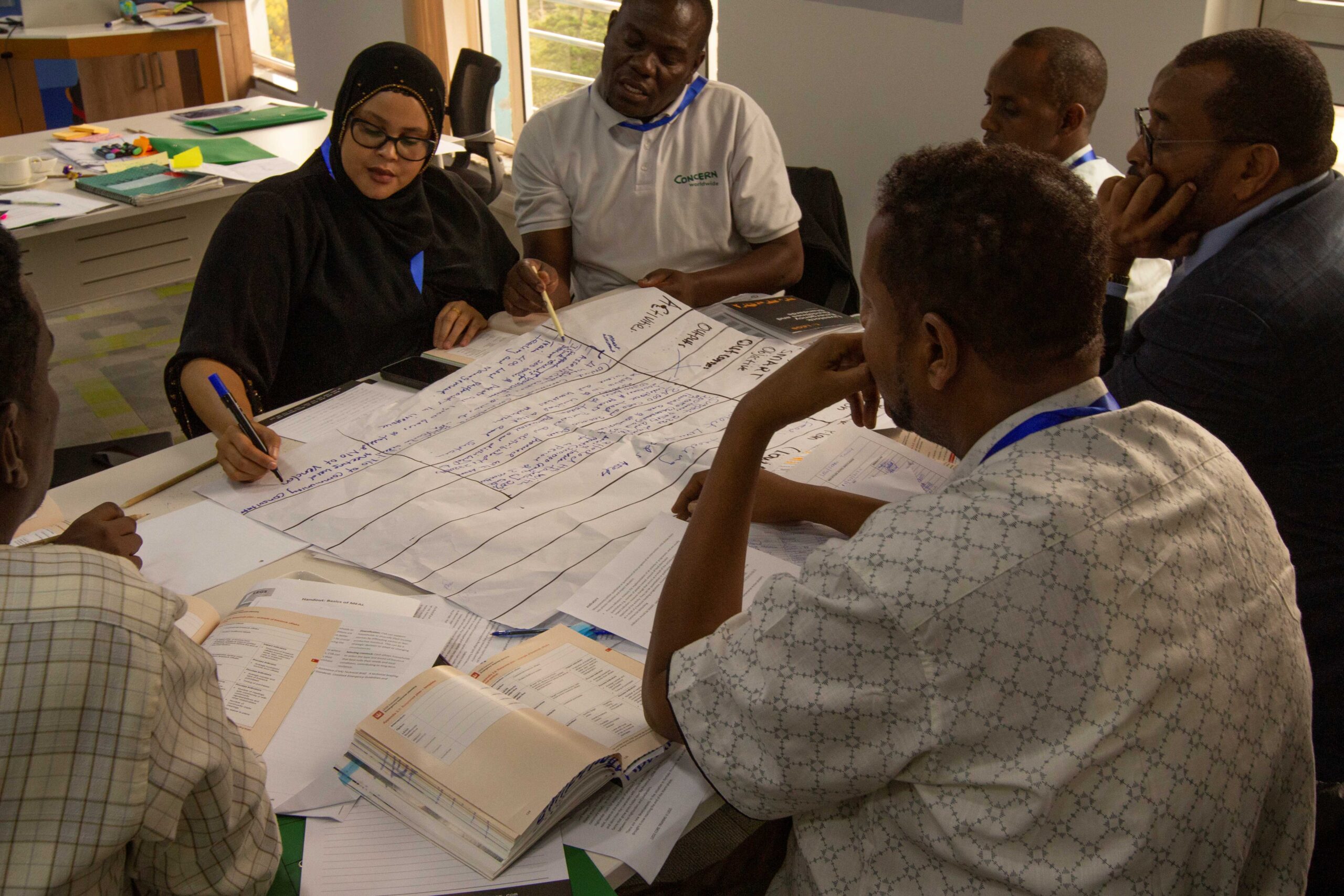Haiti, a nation known for its resilience, has faced numerous emergencies in recent years, from earthquakes to hurricanes. Ludger Jean Simon, a senior agronomist at the American University of the Caribbean, believes the widespread adoption of SEADS (Standards for Supporting Crop-related Livelihoods in Emergencies) could greatly enhance Haiti’s crisis response, especially in the agricultural sector.
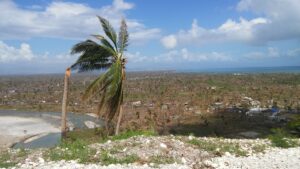
A decade of disaster: Haiti’s ongoing fight for recovery
Haiti has endured three major crises over the past decade. In January 2010, a devastating magnitude 7 earthquake struck, claiming over 200,000 lives and displacing more than one million people. “The total losses and damages were estimated between seven and 14 billion US dollars,” says Ludger. This disaster had a long-lasting effect on the country’s infrastructure, economy, and people.
In October 2016, Hurricane Matthew, a Category 4 storm, ravaged the southern region, causing $2.8 billion in damages and killing around 700 people. The agricultural sector, particularly vulnerable due to it being the harvest season, suffered massive crop and infrastructure losses. As the strongest hurricane to hit the country in 50 years, this storm worsened Haiti’s vulnerability.
Another major earthquake struck in August 2021, causing $1.6 billion in damages and around 1,500 deaths. The storm devastated rural areas, destroying homes, infrastructure, and farmlands, with landslides further compounding the destruction.
SEADS: A blueprint for a stronger crisis response
To strengthen Haiti’s agricultural crisis response, Ludger highlights the potential of SEADS standards. SEADS promotes a community-driven approach that ensures emergency interventions are well-coordinated and tailored to local needs.
“The SEADS standards can be effectively used if we involve various institutions, including humanitarian organizations, government bodies, the private sector, and civil society,” Ludger emphasizes. With cross-sector collaboration, SEADS can guide program design and participatory approaches, and ensure alignment with minimum standards. Such cooperation is essential for effective program implementation, from inception to evaluation.
Ludger points to two key SEADS methods that would greatly benefit Haiti: improved crisis identification and impact measurement. SEADS provides clear guidelines for determining when an agricultural response is required and how to prioritize interventions based on community-specific needs. One major challenge that emergency programs face, he notes, is accurately assessing their impact. However, SEADS offers tools for monitoring and evaluation (M&E), which help humanitarian organizations evaluate their interventions and make data-driven improvements. “SEADS offers excellent tools for M&E, which are crucial for ensuring humanitarian programs address the needs of the population effectively,” says Ludger.
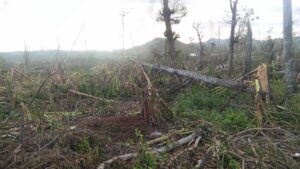
Unlocking the power of SEADS: Two paths to success
To increase SEADS adoption in Haiti, Ludger suggests two key strategies:
- Disseminating the SEADS Handbook: The SEADS Handbook is a vital resource for raising awareness and understanding of these standards among local institutions. Sharing the manual with humanitarian organizations, government bodies, and civil protection agencies will extend SEADS’ reach. Dissemination through digital platforms, such as WhatsApp and email networks, will ensure professionals in Haiti’s agricultural sector can easily access it.
- Providing training: Training key staff in institutions such as the Ministry of Agriculture and Civil Protection Committees is essential for fostering SEADS adoption. Equipping government and humanitarian workers with knowledge of the SEADS Handbook will enable them to implement these standards effectively, improving the country’s overall crisis response.
For SEADS to succeed, Ludger stresses that implementing partners must commit to incorporating its principles into their programs. Ongoing training and capacity building for government and humanitarian staff are crucial for widespread adoption. “Support is needed in the form of institutional commitment to SEADS principles and training for staff to ensure effective adoption and implementation of the guidelines,” Ludger says.
Leadership buy-in is also critical. If leaders recognize the value of SEADS and commit to integrating its guidelines, the standards will have a much greater chance of becoming a permanent fixture in Haiti’s emergency response system. Training program designers and managers in SEADS will foster stronger, evidence-based interventions that have a lasting impact on communities.
French translation: A game-changer for local adoption
The translation of the SEADS Handbook into French marks a significant step in expanding its accessibility in Haiti. Since French is the dominant language in formal education and industry sectors in the country, this translation allows more agricultural and humanitarian professionals to engage with SEADS principles. “The availability of the SEADS Handbook in French will greatly enhance implementation in Haiti. This translation will make the guidelines more accessible and increase their adoption among local professionals and organizations,” Ludger notes.
A more resilient future through SEADS
As Haiti continues to face both natural and man-made emergencies, the implementation of SEADS standards by the government and humanitarian organizations offers a promising path to improved crisis response. By promoting community-driven programming, participatory approaches, and better coordination among stakeholders, SEADS can help Haiti recover more swiftly from disasters and build resilience for the future. With the French version of the SEADS Handbook now available and ongoing efforts to train local professionals, Haiti stands ready to make significant strides in its emergency agricultural response, better protecting its communities in times of crisis.
Note: A webinar to launch the French SEADS handbook and to provide further examples of how SEADS is being institutionalized was held on October 24th, 2024. Click here to view video.

